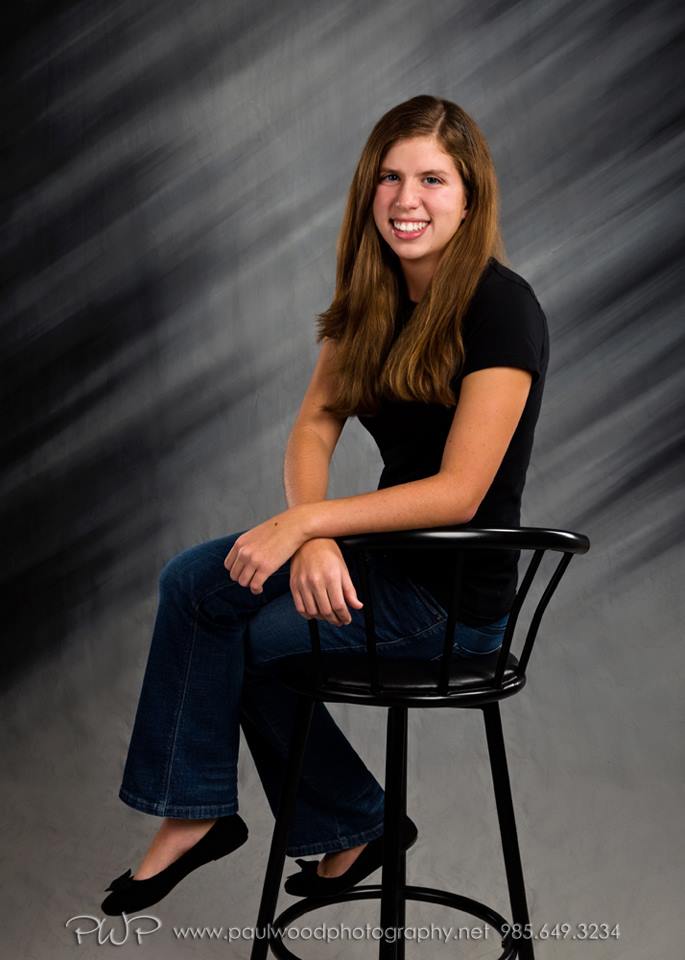Holladay Happy With Robotics Research Rising Senior Earns NCWIT Collegiate Award for Research on Robot Gestures
Susie CribbsWednesday, July 6, 2016Print this page.

Before she even arrived at Carnegie Mellon University in 2013, Rachel Holladay had already built a mapping website that displayed geochemical physical data about the Gulf of Mexico for the United States Department of the Navy, and had spent nearly a decade involved in the FIRST Robotics program. Since then, she's performed exciting research on gestures for robots, and has taken on leadership roles in the School of Computer Science's Women @ SCS and SCS4All outreach organizations. That's all in addition to carrying a full courseload each semester.
It's no surprise, then, that the rising computer science senior and Slidell, Louisiana, native recently earned the 2016 Collegiate Award from the National Center for Women & IT (NCWIT).
Sponsored by Hewlett Packard Enterprise and Qualcomm, the Collegiate Award honors the outstanding technical accomplishments of college women of any year of study. Conferred on up to six winners annually, the award recognizes women's technical contributions to projects that demonstrate a high level of creativity and potential societal impact. Each winner receives a $10,000 cash award, engraved trophy and a trip to the annual NCWIT Summit in Women and IT — held this past May in Las Vegas.
Holladay, who also earned the national NCWIT Aspirations in Computing Award for high school woman in 2011, received the honor for her work on "Robot Gesture Engine (RoGuE)," which she completed in the Personal Robotics Lab in CMU's Robotics Institute. Working with Finmeccanica Associate Professor in Computer Science Siddhartha Srinivasa, Holladay developed a library of gestures that improve robot communication and partnership skills in human environments and collaborative settings. While the gestures function on several robots, Holladay worked primarily with the lab's Home Exploring Robot Butler — HERB.
Holladay's work with HERB and other robots isn't limited to RoGUe, though. She began working in the Personal Robotics Lab as a first-year student, mostly through pure determination.
"I wanted to do robotics when I came to Carnegie Mellon, and I jokingly say that I came here for the Robotics Institute," she said. "Associate Teaching Professor and Assistant Dean for Undergraduate Education Tom Cortina sends students emails about research opportunities. At the very bottom of one email was one about robots. It listed a set of skills, and I had fewer qualifications than they asked for. You could quantitatively measure that I was not qualified. Logically, I applied anyway. Because what's the worst that could happen?"
Holladay didn't get that job, but the graduate student who interviewed her said that they'd be in touch if anything else came up, "which I thought was just a nice way of saying goodbye," she said. But a few weeks later, they contacted her and offered her a research position in the Personal Robotics Lab, where she's worked ever since.
She began her time in the lab studying deceptive robotics: how robots can deceive through their motion. Then she moved on to her work in gestures, and also studied controls for assistive robotics. More recently, her research has centered on how to use machine learning to allow robots to learn from the humans around them.
"Imagine if a computer is trying to learn how you liked your cookies, for example, and they asked you a bunch of comparison questions," she said. "It's very easy for you to answer, and the computer can learn your preferences based on that."
This work is so recent, in fact, that she just presented a paper based on it at the Robotics: Science and Systems conference, held June 18–22 at the University of Michigan.
As she enters her senior year, Holladay plans to continue her work in the Personal Robotics Lab, but will focus on developing algorithms that will allow robots to follow arbitrary paths in space — specifying a path and then asking the robot to achieve it. "The hope is that if you can easily specify these paths, you can get a robot to follow directions like 'Oh, just pull it down,' and to expand their skill sets by building this new motion planner."
In between her research and course obligations, Holladay leads professional development activities for CMU's Women @ SCS organization and academic development activities for SCS4ALL, which aims to build a more inclusive environment in SCS. She also mentors the Girls of Steel, the FIRST Robotics team for Pittsburgh-area girls sponsored by CMU. She's also co-committee lead for this coming year's SCS Day, when the community gathers to celebrate its members' non-computing talents.
It might seem like she doesn't have a moment to rest, but Holladay would have it no other way.
"I wanted to do computer science and robotics, and if you want to do the intersection of those two, Carnegie Mellon is a good place to do it," she said. "I do what I like and this is what I like, so I do it a lot."
It's still early to determine what lies beyond Carnegie Mellon, but Holladay loves research and comes from a family of researchers. Her father teaches mathematics at the University of New Orleans, and her mother is an electrical engineer for NASA. So research seems to be in the blood.
"It's been a dream and goal of mine for a long time to earn a Ph.D., and I really like doing research," she said. "I think it makes sense that if you're happy with something, you should keep doing it."
Byron Spice | 412-268-9068 | bspice@cs.cmu.edu
